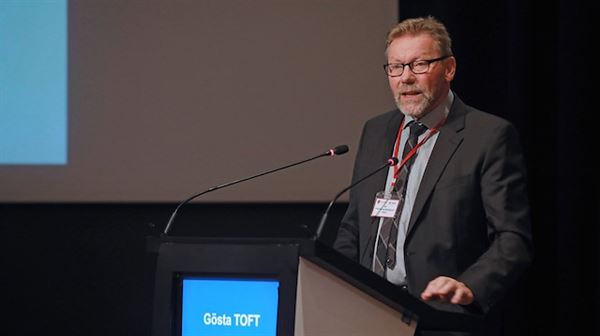The Turkish minority in Greece's Dodecanese island group faces the threat of "strong" assimilation, according to a European minority advocacy group. T
The Turkish minority in Greece’s Dodecanese island group faces the threat of “strong” assimilation, according to a European minority advocacy group.
The islands are home to a Turkish-Muslim minority of around 6,000 people.
Speaking to Anadolu Agency, Gosta Toft, vice president of the Federal Union of European Nationalities (FUEN), underlined the importance of native language education for the future of the Turkish minority in the Dodecanese.
“If they do not learn the language [Turkish] in school, then we will have a strong assimilation, and that is what happening now,” said Toft, who is himself a member of the German minority living in Denmark.
Toft, in Turkey’s Aegean Izmir province last week to take part in a symposium about the problems of Turks in the Dodecanese, said there are bilingual schools for German students in Denmark financed by the Danish state. But the Dodecanese lacks such bilingual schools for its native Turks, he said.
“[In Denmark] it is the opposite of what happened in Greece,” he said.
Toft said Greece recognizes neither the Turkish minority in the Dodecanese islands nor that in Western Thrace.
Greece’s Western Thrace region is also home to a Turkish-Muslim minority of around 150,000 people.
“They have to accept the Turkish minority, that is a fact. If they do not, then the international society has to put pressure on Greece to change the situation,” he stressed.
Toft said the solution lies in establishing dialogue, arguing: “We have to find a way to take up dialogue between the minority and the Greek state.”
– Muslim endowments near extinction
Toft stressed the importance of Muslim pious endowments on the islands, known as vakifs, for the lives of members of the group, with the minority depending on activities organized by these groups.
He said if the minority is denied the chance to run the vakifs themselves, their future prospects on the islands suffer.
“That is very serious, and we have to take action,” Toft stressed.
The Federal Union of European Nationalities has been active on this issue, making resolutions to send to Athens, though the group has yet to get a response, he said.
“That is really a problem for us,” Toft said.
Toft added that Muslim vakif properties on the Dodecanese are being sold off, endangering the future of the Turkish minority on the islands.
Underlining that there are minority-run foundations in Denmark, he said: “But here, the minority has no influence on it [foundations], that is the most important thing, and then you [Greece] can sell [properties] without any problem.”
There used to be around 400 vakif properties on the Dodecanese islands but now there are only 40, with 90% of the foundation properties having been sold off.
Toft said if the Turkish minority had influence over the vakifs, the properties would have not been sold off.
“So the first step is to get influence and stop these sales,” he added.
FUEN, founded in 1949 in Paris, is an umbrella group that unites more than 90 national minorities and language communities in 35 countries and it is the largest umbrella organization of Europe’s local minorities.
